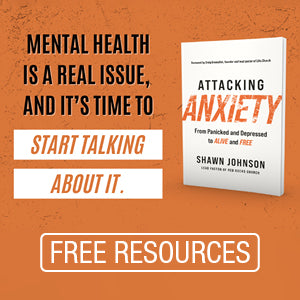Blog
Blog
Your Viewing Guide to Christmas Bible Studies for Small Groups or Families
4 Ways to Use The Marriage Devotional in Your Church
Woman Evolve
Waiting for God’s Timing
Mental Health: Could Your Small Group Use Some Help to Support Each Other?
Studies show that 1 out of every 4 adults in America will be affected by mental illness at some point in their lifetime.
I decided to dedicate Season Two of our podcast, Study Gateway’s First Listens, to this universal and timely issue of mental health. I have curated a collection of sessions from seven Bible studies that speak to different aspects of mental health.
Fentanyl overdoses, fuel costs soaring, and failing power supplies. Is it chaos? Not to God
Reading the Gospel of John: Believing in Jesus
5 Keys to Success for the Introverted Small Group Leader
Abide Bible Course: Five Practices You Can Use to Engage With the Bible
The Four Lies of Worry
Passing the Baton of Truth
Three Questions to Ask before making a Career Change
That’s four million people who woke up the next day wondering, “What do I do next?”
What’s even more interesting is that April was not an anomaly. It follows a trend of the months before where millions and millions of people simply quit, walking away from their jobs.
Guiding Teens on Sex and Sexting
Guiding Your Teens on Social Media
The Strength That Prevails - Resilient
Right now, we’re in a sort of global denial about the actual cost of these hard years (which are not over). We just want to get past it all, so we’re currently trying to comfort ourselves with some sense of recovery and relief. But folks, we haven’t yet paid the psychological bill for all we’ve been through. We would never tell a survivor of abuse that the trauma must be over now that the abuse has stopped. And yet that mentality is at play in our collective denial of the trauma we’ve been through.


















